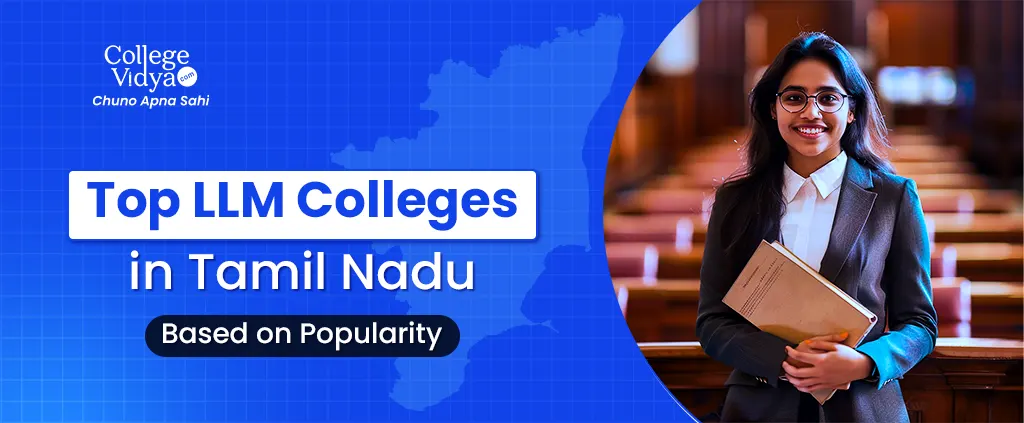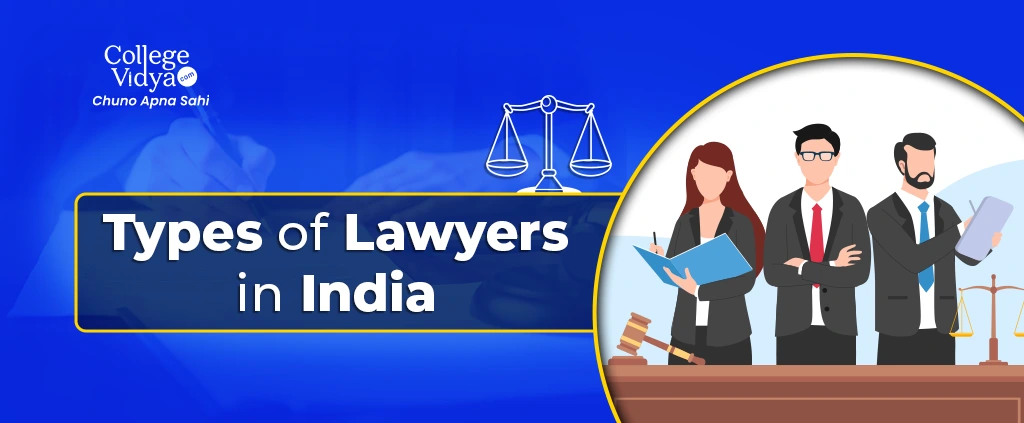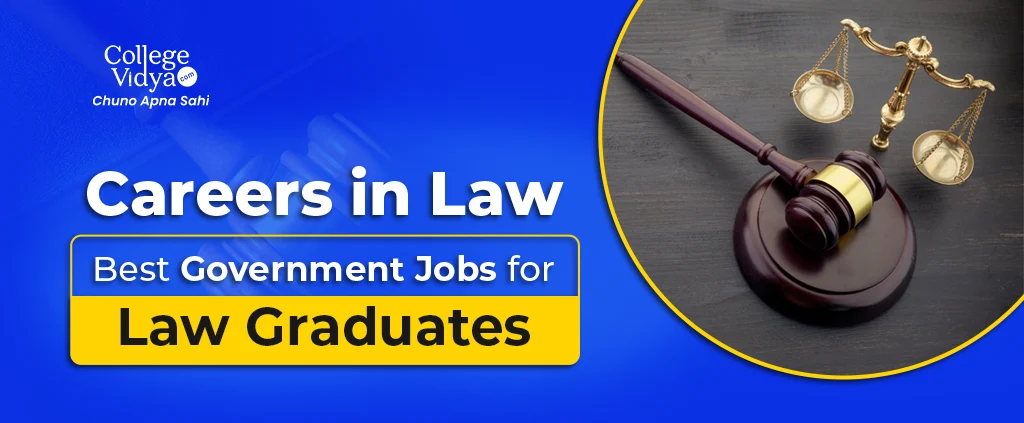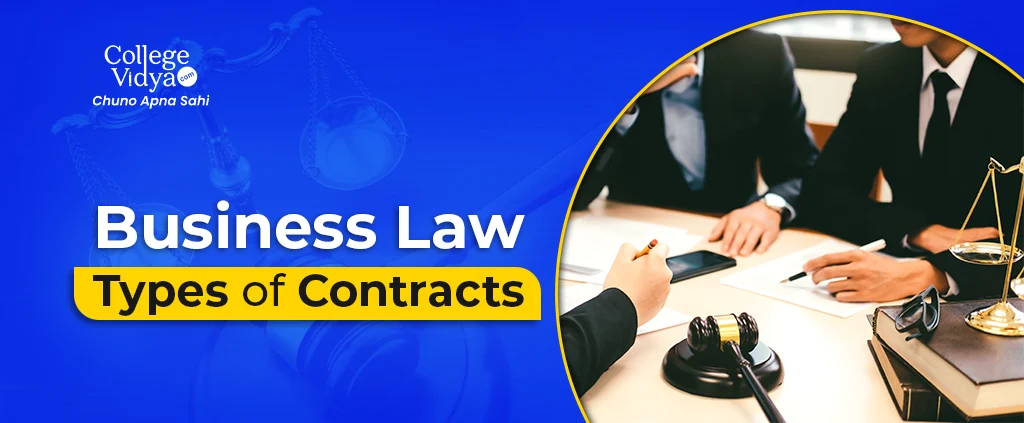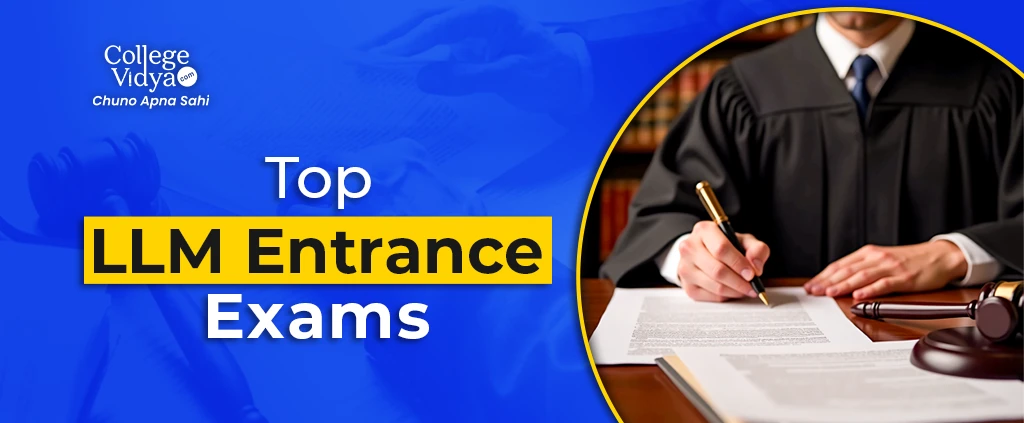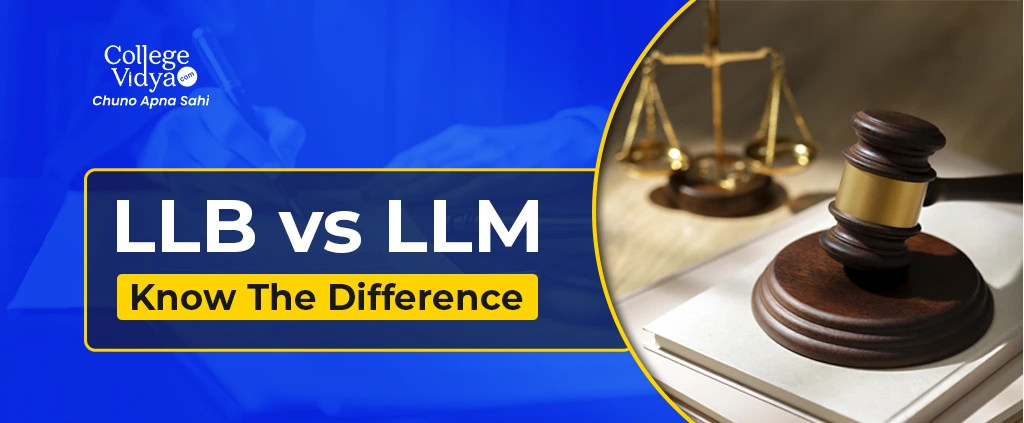Tamil Nadu has more than 20 Universities and almost 40 affiliated colleges that are BCI-approved and offer LLM courses to students. Two universities are listed on the NIRF Ranking List 2024. Tamil Nadu's literacy rate has been increasing over time, and as per the recent census (2011), it is 80.09%. Of this, 73.44% is female literacy rate, while 86.77% is male.
Online/Distance LLM and 1-Year LLM programs are not valid in India and are not recognized by Bar Council of India. These programs are listed on our website only to inform and counsel students about current regulations. Read more about the Click Here.
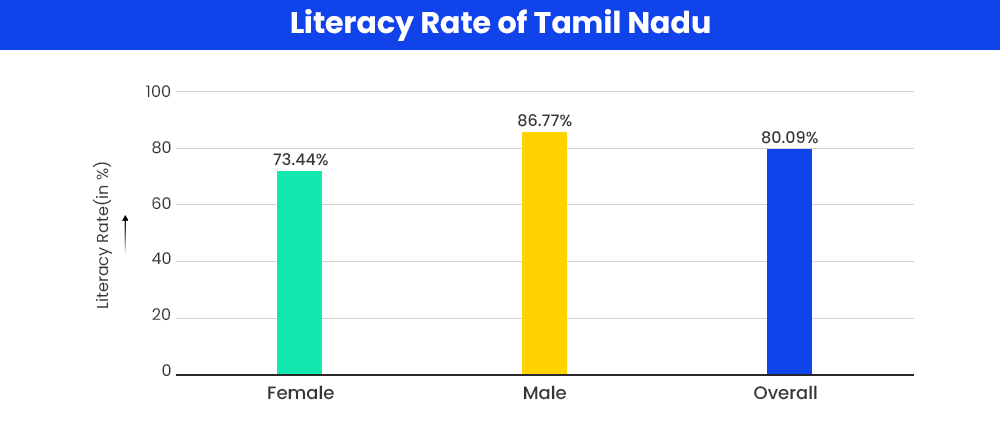
LLM courses
LLM stands for Master’s of Law. this is a degree that only Law enthusiasts can pursue. Individuals who are interested in the law field should only pursue this course. Choosing any one specialization out of hundreds is quite a tough job. But if you have a particular field or niche in your mind then maybe finalizing it might be a bit easier. LLM has numerous specializations and the basic eligibility to pursue LLM is to have a bachelor’s degree in the Law field, either a 3- or 5-year Bachelor’s program. Some LLM programs are offered in hybrid mode or blended learning mode for example Jindal Global School of Learning. We will discuss this University as well, along with its eligibility criteria, offered specializations, syllabus, and course fee.
Why should you pursue an LLM program?
Pursuing an LLM has many benefits. As we all know, a master’s is a program that only dedicated or interested students pursue. Let’s look a a few of the points that will clear why should you pursue an LLM program with your chosen specialization.
Specialization
LLM program offers you the opportunity to choose any specialization that you wanna learn about and deepen your knowledge in the same. This will improve your knowledge in a particular niche and shortly you can become a lawyer in that particular field.
Salary increase
Pursuing an LLM degree increases your chances to earn more. As with more knowledge and practice, the salary at a particular post may increase over time. Additionally, this program will help to increase your knowledge and thus increase your earning potential.
Career Advancement
An LLM program in any particular specialization will enhance your knowledge, practice, and understanding skills so that you may enhance your decision-making power. Thus, enhancing your skills in your educational journey will help in advancing your career with time.
Networking opportunities
Getting a master’s degree done is a wonderful achievement, as this will enhance your legal skills and make you a knowledgeable law professional. Throughout this journey, you get in contact with multiple law professionals, mentors, industry specialists, foreign faculty, and your fellows, who will soon become a great person in the face of law professionals, hence, making connections with them will help you to increase your network of law professionals.
International opportunities
Law professionals can pursue their master’s degree in their chosen field of specialization, out of their interest. This LLM program is recognized all over the world, so, the law professional can get multiple international opportunities to go with.
Top 10 LLM courses offering Universities in Tamil Nadu
In this blog, we will be going to read about the top 10 LLM-offering universities in Tamil Nadu based on their popularity among law students all over India. All the universities listed below are BCI (Bar Council of India) approved and 2 Universities come under the top 15 universities in the NIRF (National Institutional Ranking Framework) Ranking List. Let’s discuss more about these universities related to their syllabus, offered specializations, fees, and eligibility criteria.

Saveetha Institute of Medical and Technical Sciences, Poonamallee
Saveetha Institute of Medical and Technical Sciences, Poonamallee is a University that ranked 12 on the NIRF ranking list 2024 and is one University out of two that ranked in that list. Additionally, this university has BCI approval to offer LLM courses. Saveetha Institute’s School of Law was established in 2009 and since then, they have been serving society by providing various law programs to students. This University provides 6 specializations under the LLM one-year program. Let’s see what eligibility criteria, specializations, and syllabi the university offers.
| Saveetha Institute of Medical and Technical Sciences, Poonamallee | |
|
Eligibility criteria for admission |
|
|
Specializations |
|
|
Course Duration |
1-year program |
|
Fee |
Tuition fee for the course: INR 2,50,000 |
Syllabus
Saveetha Institute of Medical and Technical Sciences offers a diverse syllabus to its students in all 6 specializations. This university offers these specializations as a one-year LLM program. Let’s see the syllabus offered by the university to its students:
|
Specializations |
Syllabus/Subjects |
|
Business Law |
|
|
Criminal Law |
|
|
Intellectual Property Rights |
|
|
Constitutional law |
|
|
International Law |
|
|
LabourLaw |
|
Tamil Nadu National Law University
Tamil Nadu National Law University was established by the Government of Tamil Nadu and the foundation stone of the university was laid down by the Hon’ble Chief Minister Dr. Jayalalithaa on 13th February 2012. This University is spread over 25 acres of land. TNNLU is also a member of the Association of Indian Universities (AIU).
| Tamil Nadu National Law University | |
|
Eligibility criteria for admission |
|
|
Specializations |
|
|
Course Duration |
One-year |
|
Fee |
Course fee for the students studied in Tamil Nadu - INR 1,74,000 INR 1,68,000/- for All India - SC/ST INR 1,13,000/- for Tamil Nadu – SC/ST Course fee for the students studied outside Tamil Nadu - INR 1,74,500 INR 1,68,500/- for All India - SC/ST INR 1,13,500/- for Tamil Nadu – SC/ST |
Syllabus
The curriculum is designed to benefit students by enhancing and advancing their knowledge and critical thinking. This will help them when they are looking for job opportunities in academia, research skills, roles in the Bar Council, or regulatory bodies. Let’s look at what they offer in their syllabus for all 3 specializations.
|
Specializations |
Syllabus |
|
Corporate and Securities Laws |
|
|
Intellectual Property Laws |
|
|
Natural Resources Laws |
|
Tamil Nadu Dr Ambedkar Law University [TNDALU]
School of Excellence, Tamil Nadu Dr Ambedkar Law University [TNDALU] offers law programs to law students. This university was established in 1997 and named after a person who wrote the constitution of India and that person is Dr. BR Ambedkar. This university has a total of 16 affiliated colleges in Tamil Nadu itself that offer LLM programs as well.
| Tamil Nadu Dr Ambedkar Law University [TNDALU] | |
|
Eligibility criteria for admission |
|
|
Specializations |
|
|
Course Duration |
2-year program |
|
Fee |
Tuition fee for the course: INR 70,200 |
Syllabus
School of Excellence, Tamil Nadu Dr Ambedkar Law University [TNDALU] developed its syllabus with the help of industry specialists, professors, and law professionals. They have come up with such a great syllabus that will help the students grow both personally and professionally. Let’s see, what this University offers as a syllabus to its students.
Business Law
|
Syllabus for LLM in Business Law |
|
|
Semester I |
Semester II |
|
|
|
Semester III |
Semester IV |
|
|
Intellectual Property Law
|
Syllabus for LLM in Intellectual Property Law |
|
|
Semester I |
Semester II |
|
|
|
Semester III |
Semester IV |
|
|
Environmental Law and Legal Order
|
Syllabus for LLM in Environmental Law and Legal Order |
|
|
Semester I |
Semester II |
|
|
|
Semester III |
Semester IV |
|
|
Taxation
|
Syllabus for LLM in Taxation |
|
|
Semester I |
Semester II |
|
|
|
Semester III |
Semester IV |
|
|
*To check the syllabus for all the above-discussed specializations, Kindly visit the official website of the university or you can check by visiting the below-provided links.
- Business Law: https://tndalu.ac.in/pdf/2021/jan/PGDEPT/LL.M.%20SYLLABUS_BUSINESS%20LAW.pdf
- Constitutional Law and Human Rights: https://tndalu.ac.in/pdf/2021/jan/PGDEPT/LL.M.%20SYLLABUS_CONSTITUTIONAL%20LAW%20AND%20HUMAN%20RIGHTS.pdf
- Intellectual Property Law: https://tndalu.ac.in/pdf/2021/jan/PGDEPT/LL.M.%20SYLLABUS_INTELLECTUAL%20PROPERTY%20LAW.pdf
- International Law and Organization: https://tndalu.ac.in/pdf/2021/jan/PGDEPT/LL.M.%20SYLLABUS_INTERNATIONAL%20LAW%20AND%20ORGANISATION.pdf
- Environmental Law and Legal Order: https://tndalu.ac.in/pdf/2021/jan/PGDEPT/LL.M.%20SYLLABUS_ENVIRONMENTAL%20LAW%20AND%20LEGAL%20ORDER.pdf
- Criminal Law and Criminal Justice Administration: https://tndalu.ac.in/pdf/2021/jan/PGDEPT/LL.M.%20SYLLABUS_CRIMINAL%20LAW%20AND%20CRIMINAL%20JUSTICE%20ADMINISTRATION.pdf
- Human Rights and Duties Education: https://tndalu.ac.in/pdf/2021/jan/PGDEPT/LL.M.%20SYLLABUS_HUMAN%20RIGHTS%20AND%20DUTIES%20EDUCATION.pdf
- Labour Laws and Administrative Law: https://tndalu.ac.in/pdf/2021/jan/PGDEPT/LL.M.%20SYLLABUS_LABOUR%20LAW%20_%20ADMINISTRATIVE%20LW.pdf
- Taxation: https://tndalu.ac.in/pdf/2021/jan/PGDEPT/LL.M.%20SYLLABUS_TAXATION%20LAW.pdf
- Cyberspace Law and Justice: https://tndalu.ac.in/pdf/2021/jan/PGDEPT/X_Cyberspace-Law_and_Justice.pdf
- Maritime Law: https://tndalu.ac.in/pdf/2021/jan/PGDEPT/XIMaritime%20Law.pdf
Dr. Ambedkar Government Law College, Chennai
Dr. Ambedkar Government Law College was named after a person, Dr. BheemRao Ambedkar, who wrote the constitution of India and is affiliated with Dr. Ambedkar Government Law University. They offer 4 different LLM specializations to the students who are eager to learn and understand the law more deeply and with more dedication. Let’s see what are their eligibility criteria, fee, duration of the LLM programs, specializations and respective syllabus
| Dr. Ambedkar Government Law College, Chennai | |
|
Eligibility criteria for admission |
|
|
Specializations |
|
|
Course Duration |
2-year program |
|
Fee |
INR 4,000 |
Syllabus
Dr. Ambedkar Government Law College is an affiliated college of Tamil Nadu Dr Ambedkar Law University [TNDALU] and thus the syllabus was developed by the university itself. Let’s see the syllabus for one of the specializations offered at this law college which is Business law.
|
Syllabus for LLM in Business Law |
|
|
Semester I |
Semester II |
|
|
|
Semester III |
Semester IV |
|
|
VIT School of Law, Chennai
VIT School of Law, Chennai was established in the year 2014 and is one of Chennai’s best colleges. This university aims to provide a quality education to its students. This university has been accredited by NAAC (National Assessment and Accreditation Council) as an “A++ Grade” university. To get admission to this university, they accept CLAT as well as LSAT Marks. Studying at VITSOL is quite a good experience. Additionally, this University is also approved by the BCI (Bar Council of India) to offer law programs to the students.
| VIT School of Law, Chennai | |
|
Eligibility criteria for admission |
|
|
Specializations |
|
|
Course Duration |
1-year |
|
Fee |
INR 85,000 |
Syllabus
The syllabus proposed by the university was developed to enhance the knowledge of its students. Their knowledge-oriented approach will take the university to the top one day for sure. Their courses are designed to encourage the oratorical skills, mooting activities, and interpretative and analytical skills to build the lawyers out of their law students.
|
Specializations |
Syllabus |
|
International Law and Development |
|
|
Intellectual Property Laws |
|
|
Corporate Laws |
|
SRM School of Law
SRM School of Law was established in the year 2014. This university ranked 13 in the NIRF ranking list. Additionally, this university is one of the 46 Indian universities that come in the QS World University Ranking. Moreover, This University has been accredited by NAAC as an “A++ grade” university. This university is growing its horizon by expanding and building campuses in various parts of India. Let’s see what are the eligibility criteria to get admission to this university and also the specializations offered and fees for respective programs.
| SRM School of Law | |
|
Eligibility criteria for admission |
|
|
Specializations |
|
|
Course Duration |
One to two year |
|
Fee |
INR 1,00,000 for 2-year programs INR 1,25,000 for 1-year programs |
Syllabus
SRM School of Law offers a syllabus that focuses on the understanding of law in quite a simpler and more interesting way. Let’s see what this university offers in its LLM program.
|
Specialization |
Syllabus |
|
International Trade Law |
Semester I
Semester II
|
*To Check the syllabus for more specializations, visit their official website.
Sathyabama Institute of Science and Technology University, Jeppiaar Nagar, Chennai
Sathyabama Institute of Science and Technology University is one of the top universities in Tamil Nadu. this university offers 2-year LLM programs. The university emphasizes providing quality education to its students so that they can become whatever they are interested in. This private university was established in the year 1987. NAAC has accredited this university with an “A++ grade” university and is a Category-I University under UGC. Additionally, this university is also recognized by the Bar Council of India.
| Sathyabama Institute of Science and Technology University, Jeppiaar Nagar, Chennai | |
|
Eligibility criteria for admission |
|
|
Specializations |
|
|
Course Duration |
2-year program |
|
Fee |
INR 2,50,000 |
Syllabus
The syllabus offered by Sathyabama Institute of Science and Technology University is quite vast and has diverse subjects to study. They believe that their students should learn every aspect of their chosen specialization with the help of assignments, real-life projects, books, case studies, or internships. Let’s have a look at the syllabus offered to the students.
|
Syllabus for LLM in Intellectual Property Law |
|
|
Semester I |
Semester II |
|
|
|
Semester III |
Semester IV |
|
|
VELS School of Law, VELS Institute of Science, Technology and Advanced Studies (VISTAS)
VELS School of Law, VELS Institute of Science, Technology and Advanced Studies (VISTAS) is the university that has participated in the NIRF ranking and is one of the top universities in Tamil Nadu in which students seek admission with great interest. VISTAS has been awarded with “A++ grade” university by NAAC (National Assessment and Accreditation Council). VISTAS was established in 1992 and in 2008, UGC (University Grants Commission) granted them the status of Deemed University. Moreover, this university was recognized by the Bar Council of India.
| VELS School of Law, VELS Institute of Science, Technology and Advanced Studies (VISTAS) | |
|
Eligibility criteria for admission |
|
|
Specializations |
One-year LLM programs:
Two-year LLM programs:
|
|
Course Duration |
1- to 2-year programs |
|
Fee |
INR 1.1 Lakhs to INR 1.7 Lakhs |
Syllabus
This university has worked on its syllabus for both the 1-year program and the regular program so that students can get the required knowledge in their chosen field. VISTAS faculty regularly check up on its students if they are doing fine or facing any sort of issue in their course. As soon they find any obstacle that is limiting the growth of their students they rectify is as soon as possible. Let’s see what are they offering in their syllabus for the respective specializations.
Syllabus for 1-year LLM in Commercial Law
|
Syllabus for 1-year LLM in Commercial Law |
|
|
Semester I |
Semester II |
|
|
Syllabus for 1-year LLM in Constitutional & Administrative Law
|
Syllabus for 1-year LLM in Constitutional & Administrative Law |
|
|
Semester I |
Semester II |
|
|
Syllabus for 1-year LLM in Criminal Law & Criminal Justice Administration
|
Syllabus for 1-year LLM in Criminal Law & Criminal Justice Administration |
|
|
Semester I |
Semester II |
|
|
Syllabus for LLM in Law relating to Intellectual Property Rights
|
Syllabus for LLM in Law relating to Intellectual Property Rights |
|
|
Semester I |
Semester II |
|
|
|
Semester III |
Semester IV |
|
|
Syllabus for LLM in Law relating to Labour & Administrative Law
|
Syllabus for LLM in Law relating to Labour & Administrative Law |
|
|
Semester I |
Semester II |
|
|
|
Semester III |
Semester IV |
|
|
Government Law College, Coimbatore
This university, Government Law College, Coimbatore was established in 1979 as a public education Institute. This University is approved by the University Grants Commission and the Bar Council of India (BCI). This college has been working on the mission with a vision of a futuristic approach since the establishment of the college. Generally, most universities ask for the entrance exam marks, but this university does not require the same as they
| Government Law College, Coimbatore | |
|
Eligibility criteria for admission |
|
|
Specializations |
|
|
Course Duration |
2-year course |
|
Fee |
INR 4,000 |
Syllabus
This university offers such a wide syllabus to its students to help them gain the required knowledge that must be known by an advocate or lawyer. Let’s see what these two programs generally teach to their students.
|
Specialization |
Syllabus |
|
Business Law |
|
|
Taxation Law |
|
Hindustan Institute of Technology and Science
Hindustan Institute of Technology and Science was established in 1985 and offers multiple undergraduate programs, postgraduate programs, research and doctoral programs, and diploma programs in various fields. Hindustan Institute has been recognized by the University Grant Commission. Also, the National Institutional Ranking Framework (NIRF 2024) is #151-200 in the overall category. NAAC (National Assessment and Accreditation Council) has been awarded the university with an “A+ grade”.
This university also ranked 38 in the World University Rankings 2024. Additionally, this university has also been recognized by the National Board of Accreditation (NBA). Let’s explore what are the eligibility criteria to get admission to this university along with the LLM specializations, durations, fees, and syllabus.
| Hindustan Institute of Technology and Science | |
|
Eligibility criteria for admission |
|
|
Specializations |
|
|
Course Duration |
1-2 year |
|
Fee |
INR 1.6 Lakhs to INR 1.8 Lakhs |
Syllabus
Hindustan Institute of Technology and Science offers both one-year and two-year programs. This university has developed a syllabus that focuses on the student’s personal and professional growth. Through this curriculum, students get to enhance their skills like time management, legal research skills, problem-solving, critical thinking, and more such skills. Let’s see, what this university offers to its Law students.
1-year program in International Laws
|
Syllabus for a 1-year program in International Laws |
|
|
Semester I |
Semester II |
|
|
LLM in Corporate law and Constitutional & Administrative Law
|
Syllabus for LLM in Constitutional & Administrative Law |
|
|
Semester I |
Semester II |
|
|
|
Semester III |
Semester IV |
|
|
Syllabus for LLM in Corporate Law
|
Syllabus for LLM in Corporate Law |
|
|
Semester I |
Semester II |
|
|
|
Semester III |
Semester IV |
|
|
Jindal Global Law School
Jindal Global Law School was established in 2009, and since then they are helping law enthusiasts to live their dreams after completing their law degrees from here. They have a well-developed curriculum that helps students in their overall growth and enhance their skills. Jindal Global Law School has been recognized by the University Grants Commission (UGC) and the Bar Council of India (BCI). Blended Learning Program | OP Jindal Global University LLM!
| Jindal Global Law School | |
|
Eligibility criteria for admission |
|
|
Specializations |
|
|
Course Duration |
1-year program |
|
Fee |
INR 3,50,000 |
Syllabus
|
Specializations and syllabus at Jindal Global Law School (Blended Learning Program) |
|
|
Specializations |
Syllabus/Subjects |
|
Corporate & Financial Law |
|
|
AI and Emerging Technologies |
|
|
Intellectual Property & Technology Law |
|
|
Dispute Resolution |
|
Working Professionals
|
Working Professionals Also Ask |
|
What are the careers that any LLM graduate can choose?
Completing an LLM from your chosen university and with your chosen specializations opens a wide spectrum of job opportunities. From these multiple job opportunities, you need to find the best fit for you. Well, if we consider the salary part of the various job profiles, then it may vary from the work experience that law professionals may have. Also, an increase in experience in any law field may help you to get higher pay each succeeding year. Let’s see what different roles Law professionals perform in the industry.
|
Job Profiles After LLM |
|
|
|
|
|
|
|
|
|
|
|
|
|
|
|
Conclusion
LLM is a Master’s program that allows students to enhance their skills that somehow and somewhere help in their law profession. Multiple law schools offer LLM programs in every state in India, similarly, in Tamil Nadu, many universities are mostly loved by the individuals to get admission. Tamil Nadu has a higher Literacy rate than most of our Indian states. In this blog, you get to learn about the top 10 universities and colleges in India that offer LLM programs in various specializations. This description of the universities included the eligibility criteria to get admission to respective universities, fees, specializations offered, and syllabus.

